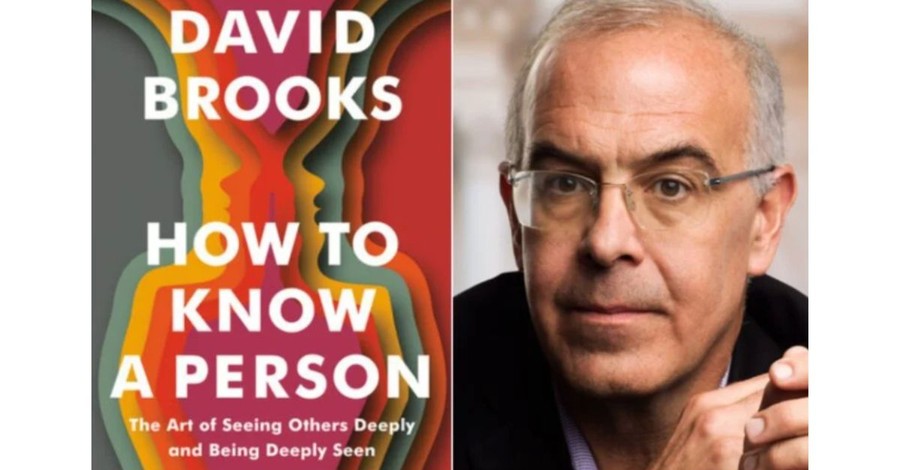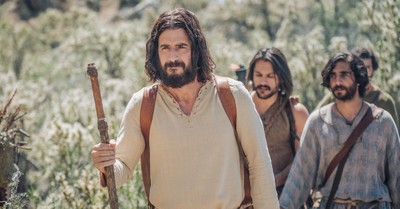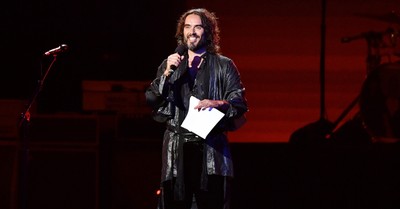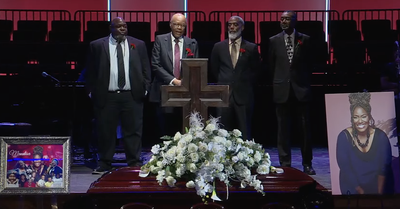
David Brooks admits coming to faith late in life has changed his perspective and writing. His new book, ‘How to Know a Person,’ is inspired by his life-changing experience. For David, faith has renewed his perspective of the people in his life and how God wants him to know and recognize them. In a sit-down conversation with Christian Headlines, Brooks lays it out on the line, speaking out about how people of faith should be the first to recognize another’s worth. God called all of us to be what David called ‘illuminators,’ people of light. David, a New York Times best-selling author, is also a New York Times op-ed columnist.
CH: We’ll get to the book; however, you’ve started a new program called the Weaver Project. Can you please tell our audience about that project?
David: It started sometime in 2017, as I noticed that social disconnection and distrust, political polarization, and racial issues were at the heart of many of our problems. We weren't seeing each other. We couldn’t trust each other. However, this problem is being solved at the local level by people who are community builders, people we call ‘weavers.’ Our theory is society changes when a small group of people find a better way to live, and the rest of us copy it. Weavers find a better way to live. Frankly, we modeled everything after the early church. People found a better way to live, inspiring the rest of us. So, we figured if we could just let these people tell their stories and support and lift them, they would be inspired and might change their behavior.
CH: What are some of the stories that have come from the Weaver Project?
David: There was a woman we met in Chicago in a neighborhood called Inglewood named Aisha Butler. Aisha was going to move out of that neighborhood because it was a little dangerous. Instead, when she was about to move out, she saw a little girl in a pink dress playing with broken bottles in an empty lot. She turned to her husband and said, “We're not moving. We're not just going to be another family that left this.” She Googled ‘volunteer in Inglewood’ and started volunteering in the neighborhood. Now, she runs an organization in Inglewood called Rage. Because of the change she has made by serving her community, local stores actually sell t-shirts that say ‘Proud Son/Daughter of Inglewood.’
CH: You’re a hard-nosed journalist. What did this do for you personally?
David: Frankly, my new book was birthed by the Weaver project. It's a spiritual, emotional journey to become more open and vulnerable. I saw by the example of Weaver illuminators that they make you feel seen, heard, and valued. There's an emotional openness to them. They're skilled at taking shallow friendship and deepening it gradually and transforming an average conversation into something great. As a journalist, I am trained to be a little bit set apart. I observe and comment about the world, but I'm not always in it. So, through the weavers and this book, I've tried to go on a journey to be a fuller and more genuinely deep-hearted human. I mention in the book that Oprah interviewed me twice in my life, in 2014 and 2019, for her show called Super Soul Sunday. After the second interview, she said, “David, I've rarely seen somebody change so much in middle age. You were so emotionally blocked before.” That was a good moment for me. I'm making some progress toward becoming a fuller human being. What Dallas Willard called ‘The renovation of the heart.’
CH: Where were you when you knew you had to write the book?
David: First, it was personal; we writers work out our stuff in public. One of my favorite things about writers is we are beggars who tell other beggars we found something. I realized I was emotionally and spiritually dry. I needed to get better at seeing others, building friendships, having great conversations, and knowing how to sit with someone suffering or grieving. These are basic social skills I didn't know how to do. Second, the writing of this book was motivated socially. We're in some sort of social and relational crisis where mental health concerns and suicide are rising. The number of people in America who say nobody knows them and have no close personal friends is 54%. 45% of teenagers say they're hopeless. 36% of Americans say they're frequently lonely. So, we have a disconnection crisis in this country.
CH: How much did COVID-19 play into where our culture is today regarding seeing and valuing others?
David: I think it really did. A lot of us lost our social skills. I would say over those couple of years, I became more introverted. It took me a lot more social energy to have a quick conversation with somebody because I was out of practice. It was like I wasn't using the muscles within me to be social. Covid was so hard on the young. It had such horrific effects on the mental health of our youth. It affected us all.
We have to reacclimate to society, and it's been hard. The rising sadness in America is reflected by the statistics I shared earlier. There's also rising madness and meanness. We’ve become a little sadder and a little meaner as a society. I have friends who work in the medical field and the serving industry, and they all have seen a rise in mistreatment from their clients and customers.
CH: You’ve been vocal regarding the former President’s behavior and the rise of bad behavior?
David: I think he first hurt us tremendously by modeling a certain behavior. Former President Trump is a narcissist. He'll never ask a question of those around him; it’s all about him. Former President Trump unleashed a lot of narcissism. Second, his whole style is to abuse and make fun of people, sometimes handicapped people. It's tough to have a humane society when it's getting pulled apart and ripped to shreds from the top. He unleashed, or really permitted for, a lot of people to be mean.
CH: How much did Christianity change how you now write?
David: Coming to faith, which happened to me about ten years ago in middle age, was a renovation of the heart. It was an opening of the spirit and a growing sense that the world was not as I experienced it. I had categories in my head that were secular. I became aware of spiritual experiences my old concepts of the world couldn't explain. The world has an undercurrent of love, and our lives are not a meaningless collision of atoms; we're part of a great story. I tried my best to connect the Bible to my new book.
CH: Did you enjoy writing the book?
David: I really did. It was fun to interview people who are good at seeing others. Some of the people I interviewed for the book were actors like Matthew McConaughey and Viola Davis, Pastors, and therapists.
CH: Did you say everything you needed to say in the book?
David: I'm learning more every day. Unlike a newspaper article, the nice thing about a book is that it’s a four-year process. The first part of the journey of writing a book is being okay with writing badly, so the first draft was terrible. It took me four years to get the right stories that illustrate the points I want to make. It took me a long time to learn everything I needed to know.
Photo Courtesy: David Brooks on ‘How to Know a Person’/why.org/12/5/23@12:30pm










